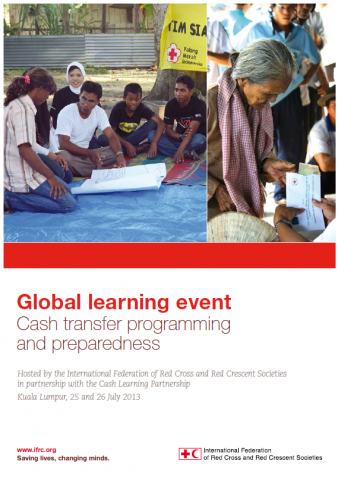Global learning event: Cash transfer programming and preparedness


As the investment in cash transfer programming (CTP) continues to grow, the focus is turning to the need to do more, do it faster and do it better. As a result, the consideration of integrating cash into preparedness and contingency plans is being raised up in the cash agenda. Through this learning event, the International Federation of Red Cross and Red Crescent Societies (IFRC) created an opportunity for humanitarian actors to come together, share experiences and identify positive approaches in integrating CTP into existing preparedness and contingency planning processes.
This report has taken the good practice, the lessons learned and the outcomes of many discussions through the course of the learning event and re-packaged it as guidance.
Part 1 of the report provides the background, introduction to the event and structure of the report.
Part 2 of the report presents the guidance under headings that address the following five key questions:
- How to ensure that CTP is properly included in broader emergency response policy and strategy?
- How best to work with others in CTP planning and implementation?
- How to set up CTP implementation structures in advance?
- What needs to be considered regarding beneficiaries’ personal information and protection?
- What needs to be done in advance to ensure effective monitoring and exit strategies for CTP programmes?
Part 3 of the report takes a functional perspective, looking at the contributions to be made by different parts of the organization, and outlining responsibilities and actions to be taken.
Part 4 focuses on the recommendations from the event and suggested next steps to take this thinking forward and draws on the presentations and discussions from the two days. It is by no means exhaustive, but suggests some signposts for others to consider should there be a desire or means to further this work. This report should be seen as work in progress. It has been pulled together from a range of sources and while all of the participants will recognize parts of it, it is likely that none will recognize it in its entirety. This report is not only useful in its current form but also is a valuable foundation for a more substantial and thoughtful piece of work that incorporates existing good practice from the field.
